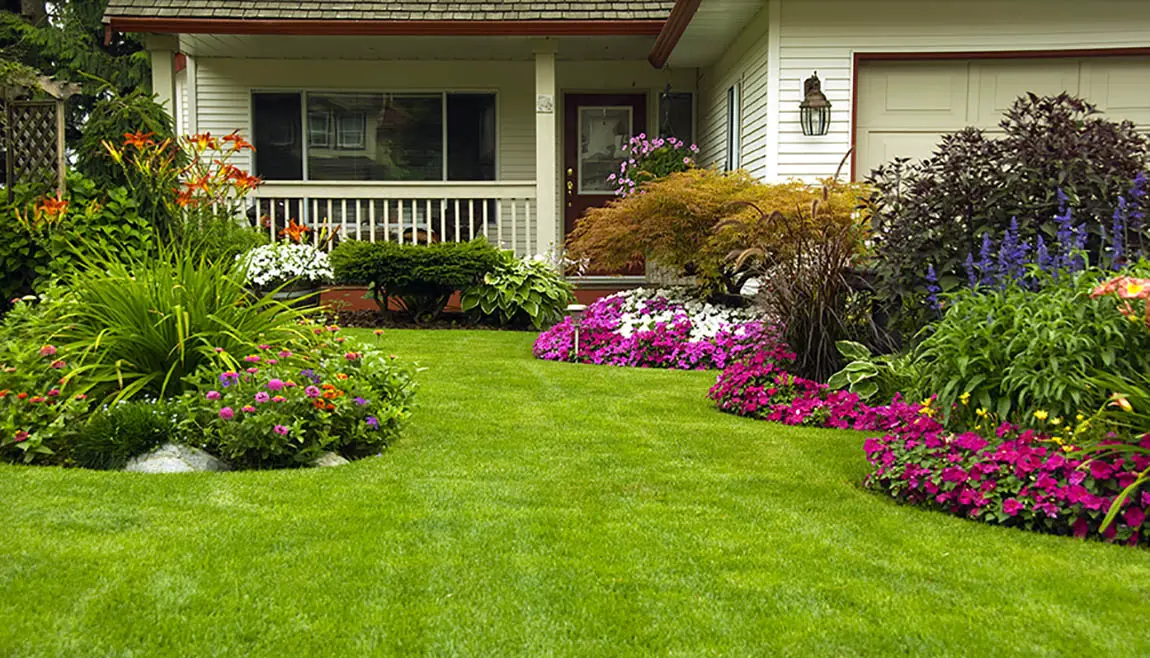Gardens are a beautiful part of every home. Having a garden in your home is nothing less than a blessing. You can grow your favorite vegetables, and plants and enjoy the view at any hour. However, maintaining a garden is also crucial, especially while landscaping.
There is nothing wrong with reshaping or landscaping your home. In fact, it’s good to occasionally shake up things around your house and improve its aesthetic appeal. Still, there are things you need to be careful about, and one of them is your garden.
A simple landscaping project can put a major impact on your well-maintained garden. From torn grass to damaged plants, you could experience multiple losses. Sometimes, the damage is irreversible. Therefore, before starting any landscaping, consider the following tips to save your home garden from harm.
Follow a Home Protection Plan
Home protection plans come in handy during landscaping projects. For those unaware of what is a home protection plan? Well, it’s a blueprint of what you will do and how you will carry out a project. With a plan, people make fewer errors. Even the chances of ruining your gardens minimize.
You could ask professionals for help or make a plan after consulting online websites. When an individual systematically approaches a project, he makes fewer mistakes.
Thus, a home protection plan is mandatory to protect your garden from harm while landscaping. It takes years to build a beautiful garden but only minutes to destroy it. So, be as careful as possible and follow protection plans.
Move Away All the Plants
Before starting landscaping projects, try to move out excessive material. For example, you could remove all the furniture if your project is within the house premises. Similarly, when you plan to renovate the exterior of your home, you will need to shift all your plants.
During renovations, more people move in and out of your home. There will even be maximum utilization of heavy machinery. All these factors ruin the health of plants. So, move them out of the way to a safe place.
Small plants and those species which cannot survive in rash conditions should be temporarily shifted to another ground. Once the project is complete, you could carefully move all your plants back to their original place.
You could build temporary fencing around large plants having deep roots. That way, the plant remains safe. No matter what you do, don’t leave your plants unprotected. It would be the worst decision to not use any type of protection.
Take Care of the Soil
Plants grow well when provided with quality soil. If you have a garden in your home, you will be well aware of this fact. If the soil isn’t nutritious, your plants won’t survive. So, during a landscaping project, ask your workers to be careful about soil maintenance.
You could ask the construction crew to carefully dig holes. That way, the topsoil isn’t damaged. Often during digging, the topsoil ends up at the bottom of the pile. In such cases, you should first put back the clay and then the nutritious topsoil. If you do the opposite, your plants won’t get their share of nutrition.
Along with taking care of the topsoil, individuals can use equipment like plywood boards to soften the blow foot to your landscape. With the help of these tools, one can evenly distribute all the weight placed on the land and avoid soil compaction. All this ultimately leads to healthier-looking soil.
Purchase Plant Protection Covers
Individuals can also protect their gardens from harm by purchasing plant protection covers. A renovation project uses multiple tools and chemicals. Some of these are harmful to plant health. For example, paints, thinners, tar, and other materials could permanently damage any plant.
In such scenarios, you will need to cover the plantation with lightweight cloths or sheets. These covers don’t cost a fortune and successfully save plants from harm. In addition to protection, these covers also let sunlight and air pass through. Therefore, your garden plants remain protected and keep on growing.
Clear Out All the Debris
The last tip on the list is cleaning up all the debris. Every renovation project includes drilling, digging, and several other processes. All these steps lead to debris formation, which should be cleared as soon as possible.
Debris could include anything from concrete to glass to tiles. If these things are not removed in time, it will cause multiple problems. Your crew will not be able to work freely, and the debris could damage the entire garden.
So, cleaning the debris would limit the damage. As told earlier, it takes years of effort and dedication to transform your average garden into something extraordinary. Don’t let a small landscaping project negatively impact your progress. These tips will help you protect your precious gardens and plants.


